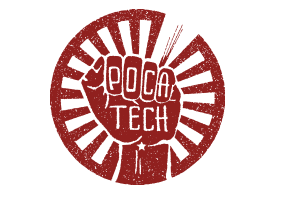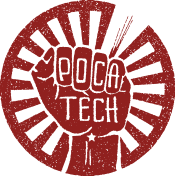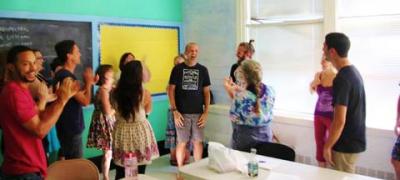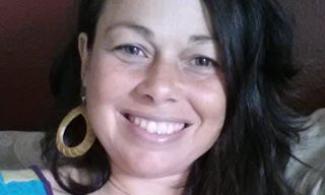
 cross-posted from Shareable
cross-posted from Shareable
Nearly a decade ago, Lisa Rohleder and Skip Van Meter of Portland dreamed up a low cost, high volume community acupuncture business model. They wanted to provide access to acupuncture for those that couldn't afford the standard fees and also to earn a sustainable living as practitioners serving lower income communities. In 2002, the first iteration of this model, called Working Class Acupuncture, was born.
The model provides frequent, effective, simple acupuncture treatments to patients at a sliding-scale cost that most can afford. Patients share one tranquil treatment room to reduce business overhead costs. Most of the treatment is limited to the extremities - arms, legs and head - as the patients kick back and relax in comfy recliners to save additional space. And practitioners may see several times the normal volume of clients in a day because the treatments are so affordable. Rooted in the values of health, social justice, and affordable access to healthcare for all, community acupuncture is more than a business, it's really an activist project.
In setting up the first community acupuncture (CA) clinic, the founders asked some simple questions: What were the barriers to people getting acupuncture? What is really necessary for acupuncture treatments? How can acupuncturists make a sustainable income providing treatments to more people? The result is the community acupuncture model, which includes some fundamental re-imaginings of what acupuncture is and can be, and many helpful systems that help clinics run smoothly.
In 2006, Lisa and Skip began offering workshops for other acupuncturists to share the CA model, the philosophies behind it, and their systems and experience. There are now hundreds of CA clinics around the world treating many thousands of patients and employing hundreds of acupuncturists. These clinics are part of a larger network, called the People's Organization of Community Acupuncture (POCA) Coop.
The only problem with this model is that many graduates of existing acupuncture schools are leaving school with $100,000 - $200,000 in debt, which most people never are able to repay. Pretty soon, the only people able to attend acupuncture schools will be students that have trust funds or wealthy parents. And those graduates may not be the most likely candidates to staff POCA's clinics. Additionally, Rohleder says, "Existing acupuncture schools don't teach the skills that POCA needs for its clinic workforce: awareness of social justice, how oppression affects patients, rapport skills for a diverse population, efficiency in a high volume clinic, and a variety of acupuncture treatment strategies."
So POCA started an affordable acupuncture school just to train community acupuncturists. The current tuition is just $5800 per year and has a schedule that many people with jobs could manage. According to POCA co-founder Lisa Rohleder, "We didn't really want to make a school, but we felt like we had to - the future of the coop depends on it. Now we're excited and happy, because we're reframing acupuncture education in a social justice context." The curriculum includes unique classes like "Punk Skills: Inside the treatment room."
 POCA opened the POCA Technical Institute (POCA Tech) this Fall. POCA. Its three year curriculum culminates in a Master’s Certificate in Acupuncture. Classes run in four-day weekend modules ten months out of the year, with a third year clinical component designed to be manageable for working students.
POCA opened the POCA Technical Institute (POCA Tech) this Fall. POCA. Its three year curriculum culminates in a Master’s Certificate in Acupuncture. Classes run in four-day weekend modules ten months out of the year, with a third year clinical component designed to be manageable for working students.
Far from being bare bones, POCA Tech teaches several different traditions of acupuncture. After completing their Master’s, POCA Tech’s goal is for graduates to become licensed to work in or open POCA clinics with the organization’s support. POCA Tech is licensed by HECC in Oregon and is pursuing accreditation with ACAOM.
“We are very excited to open the doors of POCA Tech this Fall. After so much hard work, we believe our goal of training the next generation of community acupuncturists is about to come to life,” says Rohleder. “Building and supporting this new wave of practitioners is vital to the growth of the community acupuncture movement. We treat a diverse range of patients and we look forward to training a new and diverse range of practitioners to serve our communities.”
You can support affordable education for this next generation of acupuncturists by becoming a sustainer of POCA Tech.
Go to the GEO front page


Add new comment